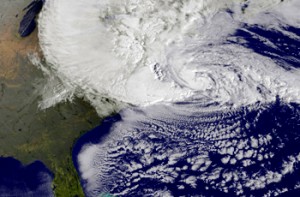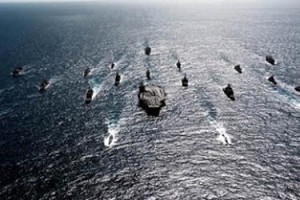Last week I made reference to the current political situation here in Barcelona as an example of geopolitical discourse, the concept that the way we see the world and our place in it has an impact on the historical process.

 Geopolitics was the fusion of the concepts politics with those of geography and was first used by writers such as Halford Mackinder and Karl Haushofer from England and Germany to think about how nation states and their politics are largely determined by the geography of their countries and regions.
Geopolitics was the fusion of the concepts politics with those of geography and was first used by writers such as Halford Mackinder and Karl Haushofer from England and Germany to think about how nation states and their politics are largely determined by the geography of their countries and regions.
According to the Oxfrod Dictionaries, Geography is “the study of the physical features of the earth and its atmosphere, and of human activity as it affects and is affected by these, including the distribution of populations and resources and political and economic activities.”
Global Weirding
 As the East Coast of the United States experiences the coldest winter in twenty years it is probably time to look more seriously at the issue of climate change and how it is starting to shape the geopolitical discourse in the U.S. and around the world.
As the East Coast of the United States experiences the coldest winter in twenty years it is probably time to look more seriously at the issue of climate change and how it is starting to shape the geopolitical discourse in the U.S. and around the world.
 I believe it was very heavy snowstorms in the US in 2010 which prompted president Obama’s speechwriters to change Global Warming to Climate Change in the president’s policy speeches on the environment. That winter the New York Times’ Tom Friedman used the term Global Weirding, first coined by Hunter Lovins to describe the effects of climate change.
I believe it was very heavy snowstorms in the US in 2010 which prompted president Obama’s speechwriters to change Global Warming to Climate Change in the president’s policy speeches on the environment. That winter the New York Times’ Tom Friedman used the term Global Weirding, first coined by Hunter Lovins to describe the effects of climate change.
If I understand the science, slight increases in the Earth’s temperature will add enormous amounts of energy to the oceans. That energy will in turn produce more extreme weather patterns across the planet which in turn can cause catastrophic damage.
 Like most of the science connected to sustainability and the environment, actually linking a specific event such as Hurricane Katrina or Sandy to man made climate change is complicated and to some degree debatable.
Like most of the science connected to sustainability and the environment, actually linking a specific event such as Hurricane Katrina or Sandy to man made climate change is complicated and to some degree debatable.
A recent report commissioned by NOAA and published by the American Meteorological Society found that man made climate change was a contributing factor to approximately half of the 2012 extreme weather events around the world that they studied.
Shale Gas and the link to geopolitics
 As the climate slowly changes and the world adapts to different weather patterns, my guess is that the geopolitical discourse of different countries will also change and this can already be seen in the United States on the issue of Shale Gas. According to David Hone who writes a blog on the environment for Shell, Natural gas contributes a little more than half as much CO2 to the atmosphere of an equivalent coal plant and this argument is being increasingly used together with that of the prospect of energy independence in support of the use of hydraulic fracking to produce Shale Gas in the Unites States and in other places around the world.
As the climate slowly changes and the world adapts to different weather patterns, my guess is that the geopolitical discourse of different countries will also change and this can already be seen in the United States on the issue of Shale Gas. According to David Hone who writes a blog on the environment for Shell, Natural gas contributes a little more than half as much CO2 to the atmosphere of an equivalent coal plant and this argument is being increasingly used together with that of the prospect of energy independence in support of the use of hydraulic fracking to produce Shale Gas in the Unites States and in other places around the world.
If it did achieve energy independence, will the United States continue its engagement with the Middle East? If Poland were to develop its own Shale gas reserves would that change the balance of power between Eastern Europe and Russia?

